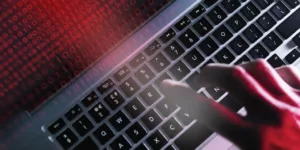The internet opens the door to get us more connected to each other. You’re more connected to your friends and family, to your favorite shows on Netflix, to your bank accounts and to the unlimited number of stores that can drop your orders at your door step.
However, the interconnectedness of your digital life is putting you in danger. Hackers are getting more sophisticated. Their sharpened skills are able to penetrate into almost any account to steal your money and your identity.
How do cyber criminals cause so much havoc? Well, the answer is easy – you allow them.
The real reason why you keep getting hacked is because you believe that ensuring cyber security is everyone else’s responsibility but yours.
While you lay back thinking the anti-virus you downloaded or your email service provider’s cyber security feature will do the trick, hackers are busy honing their skills to compromise your account and steal your identity.
Cyber fraudsters have developed malwares that get downloaded into your devices, track your every move and soak up all the sensitive details they need to literally destroy your life online.
It’s scary but it’s true.
A report released by Norton revealed that 44 percent of those who took the survey felt overwhelmed by the amount of information they’re responsible to safeguard.
People think that it’s difficult (or even downright complicated) to protect themselves from cyber attacks. The opposite’s the case. Protecting yourself from cyber attacks is easier than you think.
Here are some of the common avenues hackers exploit to get to your sensitive information and what you can do about it.
1. You share your passwords
Norton’s report revealed that 76 percent know that they must actively protect themselves when they go online but still share passwords and engage in risky behaviors.
You may want someone else to have easy access without disturbing you so you tell them your password.
Passwords are best kept secret because you never know who you’re giving your password too. A trusted friend is as human as you are. He or she may not be as careful with your password as you would. So keep your password to yourself.
2. You password’s weak
There’s a huge difference between using “IamHappy” and “17mH7p*#y” as your password. The second is more secure than the other, although more difficult to remember. Hackers will have a hard time trying to figure out such a password.
You can use a password manager that will help you keep track of your passwords. That way you won’t have to worry about forgetting your password. Make sure that the password manager you use is safe. Read reviews before choosing the password manager you use.
3. You use the same password on all your accounts
You may be wondering why there’s so much emphasis on password protection. Passwords are critical as they help hackers get access into your accounts. It’s easy for them to find your username or email, but the passwords require more effort.
For the sake of ease, many people use the same password to access multiple accounts. That’s a dangerous move. If a hacker gets hold of your password he or she has access to all your accounts.
So, create strong passwords for each account and keep track of all of the passwords with a password manager.
4. Your device’s vulnerable
Some malware can monitor your activity online, take pictures of you with your webcam and save your login details in a remote server that only the hacker has access to. Hackers use links as traps to get you to download the malware.
To prevent this from happening arm yourself with trusty applications that will scan sites for web-based malware. A good example of such application is UrlQuery. You could also download Little Snitch which will help notify you if your computer tries to send data to an unknown server.
5. You’re not mindful of emails
Phishing scams are the most popular among hackers. Phishing scams come in form of emails which supposedly comes from legitimate companies. The aim is to get you to click on a link they provide which will either ask you to put in your login details or cause the download of a malware.
The reason people fall for this is that their emails mimic legitimate companies. However, no matter how convincing the site or the content of the email may look don’t put in your login details or password. No legitimate institution will send you an email to direct you to input your login details.
6. You connect to Public Wi-Fi
Each time you connect to a public Wi-Fi you put yourself at risk of being hacked. Hackers are able to have access to the personal details of those connected to the public Wi-Fi.
Avoid using public access Wi-Fi. If you have to use the internet make sure you connect to the public Wi-Fi with Virtual Private Network (VPN). There are so many affordable VPN’s out there to choose from. VPN will help to encrypt your details thereby shielding you and your private information from hackers.
7. You don’t lock your phone
Your phone contains all your notes, apps and virtually everything a hacker can use to get into your account. So when you leave it unguarded you put yourself at risk.
You can combat this risk with a phone lock. Make sure you create a password that is not easy to guess. For additional protection you can use apps that allow you to put password combinations to your apps. That way you can lock your online banking apps and social media apps from any intruder.
About the Author:
Rupesh Singh is freelance writer and founder of moneyoutline.com You can follow him on Google + & Facebook.








